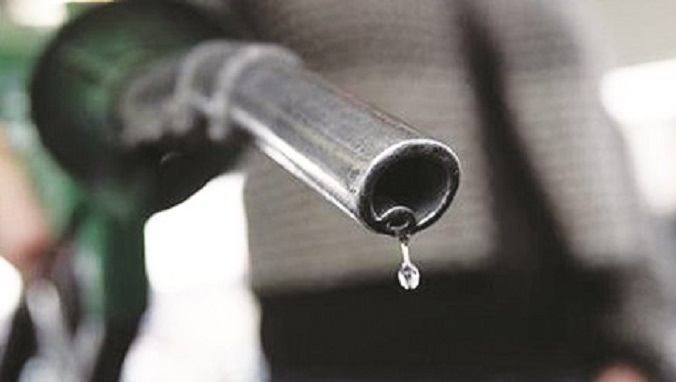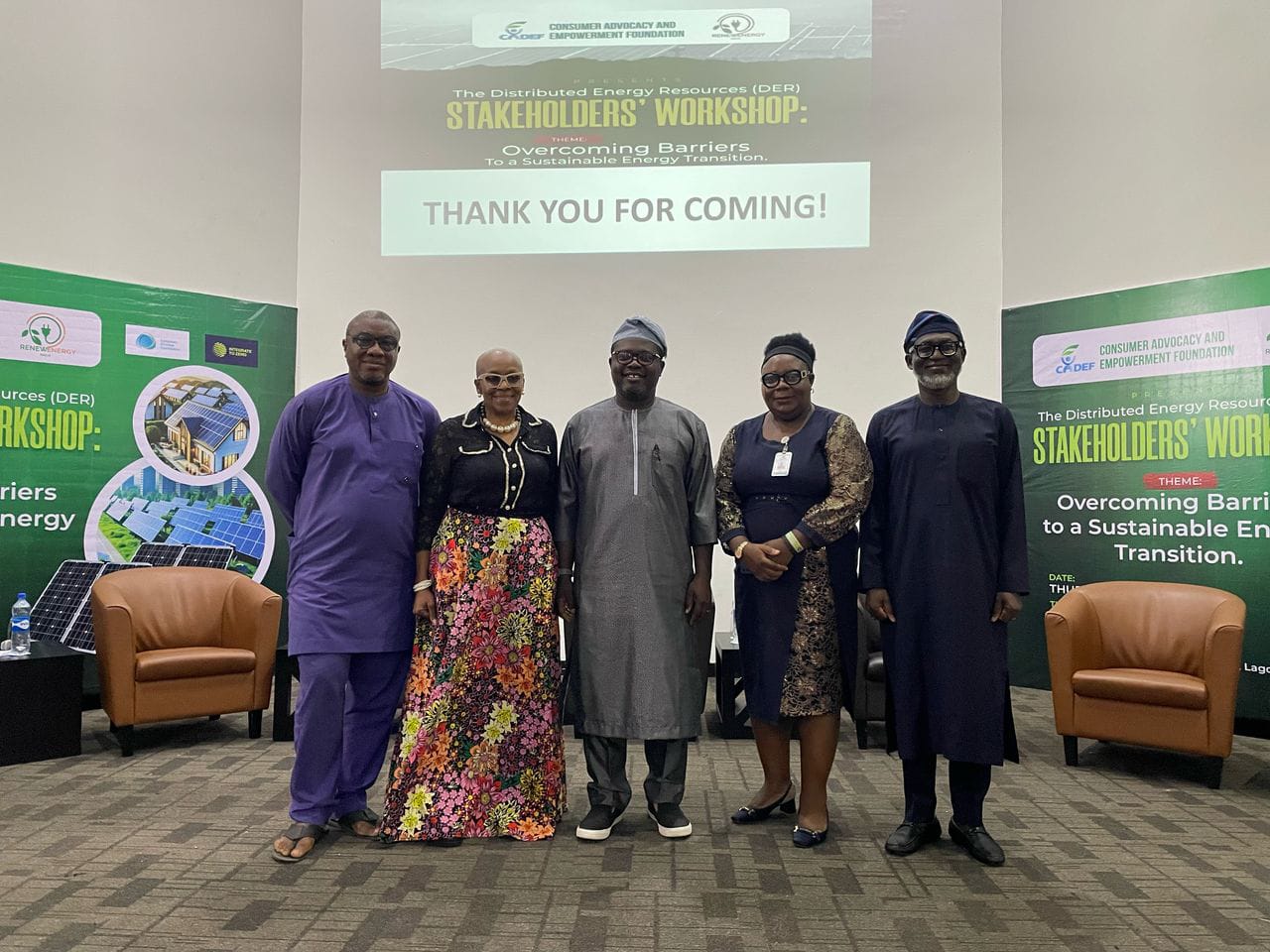This is contained in a statement signed by Dr Ejike Ndiulo, head of Corporate Communications, Air Peace, on Wednesday in Lagos.
According to Ndiulo, the decision is necessary because NiMet is the agency responsible for issuing CNH (Current Nowcast of Hazardous Weather) reports, critical for safe landings, especially during this season of heavy rainfall and thunderstorms.
He said without these reports from the control tower, flight safety could not be guaranteed.
“As a safety-first airline, we have chosen to act responsibly by suspending operations until NiMet resumes full service.
“We understand this may cause inconvenience, and we sincerely apologise. Passengers will be contacted with updates and options for rescheduling,” he said.
The staff of NiMET on Tuesday commenced an indefinite strike over the condition of service and other demands.
News
Fresh Concerns in Nigeria as Crude Oil Price Slumps below $40

The price of Brent, the benchmark for Nigeria’s crude oil, fell below $40 per barrel to a four-month low of $37 on Thursday, raising fresh fears of another price collapse as countries in Europe announced a new rash of lockdowns on the back of a second wave of the COVID-19 pandemic.

Brent dropped 3.5% to $37.75 a barrel in London, being the lowest since May, while US crude dropped by 3.6%, to $36 as supply continued to outstrip demand.
With the United States recently cutting its import of Nigeria’s crude oil, the country, which depends on it for a huge percentage of its foreign exchange earnings, has been looking to Asia, mostly China and India, and a number of European countries to buy the commodity.
The falling prices will negatively affect the financial stability of the country’s 36 states, which are heavily dependent on federal allocations to pay their bills.
Unless the drop in prices is halted, it will also hamper the implementation of the federal budget, even after the government at the centre recently reviewed it for the year.
The majority of Nigeria’s foreign exchange earnings come from oil and a crash in global oil prices would lead to a drop in the country’s fiscal revenues putting pressure on its overall budgetary balance.
As the lockdown begins to take effect across Europe, particularly Germany and France, demand for oil weakened resulting in a deterioration of the price of white oil products.
Libya currently produces 680,000 bpd and expects production to rise to 1 million bpd in the coming weeks, a development that has created an additional headache for the Organisation of Petroleum Exporting Countries (OPEC) and its allies.
The international oil cartel plans to reduce production in January 2021 from a recent 7.7 million barrels per day to about 5.7m barrels per day and is scheduled to meet on November 30 and December 1.
If the fall continues, it will also negatively impact the 2021 budget, which is currently under consideration by the National Assembly and is based on a benchmark of $40 a barrel.
Meanwhile, the Congressional Research Service (CRS), a non-partisan group which provides legislative research and analysis for the United States Congress, has said crude oil accounted for 88% of the country’s $4.4 billion imports from Nigeria in 2019.
In its updated research paper titled,” Nigeria: Current Issues and US Policy”, authored for the American lawmakers by an analyst in African Affairs, Tomas Husted, and specialist in African Affairs, Lauren Blanchard, the CRS said Nigeria had maintained its position as the United States’ second-largest trading partner in sub-Saharan Africa.
The document is to help the country’s lawmakers make ‘informed’ decisions on key issues in the country.
“As of 2019, Nigeria was the United States’ second-largest trading partner in sub-Saharan Africa (after South Africa) and third-largest beneficiary of US foreign direct investment (FDI) in the region (after Mauritius and South Africa).
“Nigerian exports to the United States are dominated by crude oil, which at $4.4 billion, accounted for 88% of US imports from Nigeria in 2019.
According to US International Trade Commission data, Nigeria consistently ranks as the top source of exports to the United States under the African Growth and Opportunity Act,” it stated
However, it noted that Nigeria also remains a major regional destination for US exports of motor vehicles and refined petroleum products (e.g., gasoline), which are among the fastest-growing U.S. exports to Africa.
Agricultural products and machinery, the research group said, are other top US exports to the country, adding that Nigeria’s demand also has driven growing U.S. petroleum exports to nearby Togo, a regional transhipment hub.
On the US foreign assistance globally, the document noted that the USAID allocated $451.4 million in bilateral aid for Nigeria in FY2020, nearly 90 per cent of which supported health programmes.
News
Lagos Sets the Benchmark in Renewable Energy as CADEF Launches Transformative Platform

Against the backdrop of Lagos State’s proactive efforts to reform its electricity sector, the Consumer Advocacy and Empowerment Foundation (CADEF) has launched its ‘Renew Energy Nigeria’ platform, a nationwide initiative with potential synergies for the state’s ambitious energy goals.

Professor Chiso Ndukwe-Okafor, CADEF’s Executive Director, introduced the platform in Lagos, highlighting its aim to empower Nigerians with information and access to decentralized renewable energy (DER) solutions. “The launch of this platform marks a significant step towards democratizing access to information and resources within Nigeria’s burgeoning sustainable energy sector.”
The platform’s launch comes as Lagos State, under the Lagos State Electricity Law, is actively establishing a regulatory framework and attracting private sector investment. Kamaldeen Abiodun-Balogun, General Manager of the LSEB, detailed the state’s progress in creating a functional electricity market, ensuring payment security, and addressing infrastructure challenges. “This law enabled us to create policy documents and establish regulatory agencies to initiate the implementation of the Lagos electricity market,” he explained, adding that private sector involvement will be key in areas where existing Discos face performance issues.
Segun Adaju, a private sector player deeply engaged in the energy sector, lauded Lagos State’s leadership. “In all these, Lagos State is always setting the pace. Many of us in the private sector players like myself, we are also looking up to Lagos State to set the pace,” he said, also mentioning his work on the Centralized Renewable Energy Desk for the state government.
While acknowledging national-level challenges such as import restrictions and forex fluctuations as noted by Professor Ndukwe-Okafor: “The recent federal plan on restrictions on the importation of solar products and the fluctuation of forex rate have made clean energy solutions costly”, the focus on Lagos State’s progress suggests a promising local environment for DER adoption, potentially amplified by CADEF’s new platform.
The broader socio-economic context, as highlighted by Olumide Ajayi, “Over 40% of Nigerians do not have access to reliable electricity”, underscored the importance of initiatives like ‘Renew Energy Nigeria’ and the enabling policies being implemented in states like Lagos.
Professor Ndukwe-Okafor concluded with a powerful call to action. “This platform is not an isolated intervention. It is aligned with our ideal country’s national vision, the 30-30-30 initiative. Let us not build a solar future that only serves the wealthy. Let us democratize clean energy. Let us make it local, inclusive, and scalable.”
The launch of “Renew Energy Nigeria” marks a significant step towards a more sustainable and equitable energy future for Nigeria, driven by innovation, collaboration, and a commitment to empowering its citizens. The platform is now live and accessible to all Nigerians seeking reliable and clean energy alternatives
News
EFCC Secures Arrest Warrant for Six CBEX Promoters

A federal high court in Abuja has granted permission to the Economic and Financial Crimes Commission (EFCC) to arrest and detain six Crypto Bridge Exchange (CBEX) promoters over allegations of investment fraud to the tune of over one billion dollars.

Emeka Nwite, presiding judge, gave the order following an ex parte application moved by Fadila Yusuf, counsel to the EFCC.
In the application by the EFCC, the six suspects are Adefowora Olanipekun, Adefowora Oluwanisola, Emmanuel Uko, Seyi Oloyede, Avwerosuo Otorudo and Chukwuebuka Ehirim.
The commission sought an order of the court for a warrant of arrest of the defendants.
They also prayed the court for “an order remanding the defendants in the custody of the complainant/applicant pending the conclusion of investigation of the alleged offences and possible prosecution”.
Yusuf said that the defendants are at large and a warrant of arrest is required to arrest the defendants for proper investigation and prosecution of this case.
In the affidavit in support of the motion, the EFCC said preliminary investigation into the intel revealed that the defendants “using their company ST Technologies International Limited, promoted another company Crypto Bridge Exchange (CBEX) by making adverts and lured unsuspecting members of the public to invest crypto cryptocurrencies on the CBEX investment platform”.
The EFCC said the defendants promised an unrealistic return on investment of up to 100 percent.
“The victims were made to convert their digital assets into a stablecoin of USDT for onward deposit into the suspects’ crypto wallet,” Yusuf said.
“The victims were initially given full access to the platform to monitor their investment.
“Following the deposits valued at over $1 billion by the victims, the CBEX investment platform became inaccessible to them, and they could no longer withdraw from the investment made.
“The victims later discovered that the said scheme is a scam.
“During the course of investigation, it was discovered that the said ST Technologies International Limited, though registered with the Corporate Affairs Commission (CAC), it was not registered with the Securities and Exchange Commission (SEC) for investment purposes.
“It was also discovered during the investigation that the defendants had moved out of their last known address in Lagos and Ogun states.”
The anti-graft agency said obtaining a warrant of arrest was necessary in order to place the defendants on a watch list, enabling authorities to trace and apprehend the suspects to face the charges brought against them.
Nwite granted the request for a warrant of arrest and remand, adding that the order was necessary to enable the commission to apprehend the defendants and conclude its investigation.
“I have listened to the submission of the learned counsel for the applicant,” Nwite said.
“I have also gone through the affidavit evidence with exhibits thereto, along with the written address.
“I am of the view and I so hold that the application is meritorious.
“Consequently, the application is granted as prayed.”
Earlier in April, reports emerged that CBEX users could no longer withdraw their funds.
On Monday, angry investors stormed and looted the office of Smart Treasure (ST Team), an affiliate of CBEX, in Ibadan, Oyo State.
The EFCC recently confirmed receiving multiple complaints about the platform.
Dele Oyewale, the commission spokesperson, assured affected investors that efforts were underway to recover their funds.
News
Air Peace Suspends Flight Operations Nationwide


 Telecom1 day ago
Telecom1 day agoMTN Appoints Egerton Idehen as Chief Broadband Officer

 E-Business2 days ago
E-Business2 days agoALX Nigeria Launches 2025 Ventures Incubator, Premieres Pan-African “Do Hard Things” Finale

 General News1 day ago
General News1 day agoUBA Marks 75 Years of Excellence at 65th AGM

 Telecom1 day ago
Telecom1 day agoMTN Group Suffers Cyberattack

 Telecom1 day ago
Telecom1 day agoMTN Foundation Launches Skills Academy to Bridge Nigeria’s Digital Skills Gap

 Telecom1 day ago
Telecom1 day agoLegend Internet Plc Makes History as First Indigenous Telecom Firm on NGX
- Telecom1 day ago
Tribunal Upholds FCCPC’s $220m Fine against Meta, WhatsApp

 E-Financial2 days ago
E-Financial2 days agoFintechs Add $18m to New Tax Initiative


























